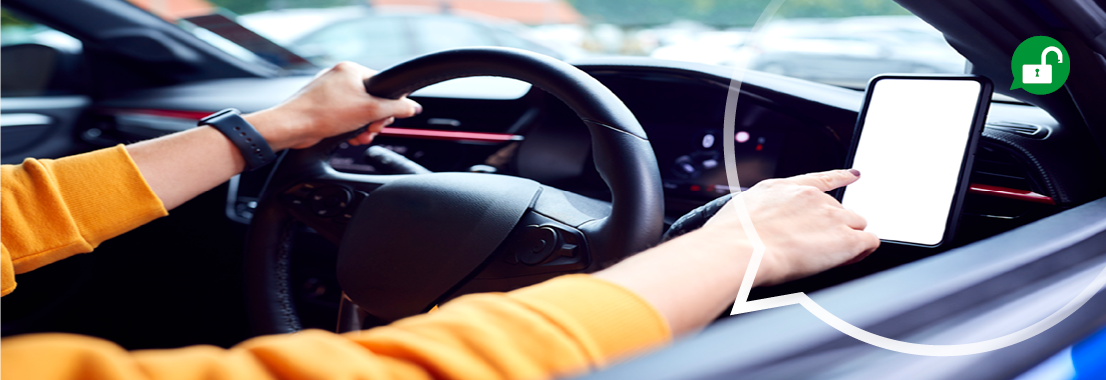
Driven to distraction?
Driven to distraction?
Dr Karen McDonnell, our Occupational Health and Safety Policy Adviser and Head of RoSPA Scotland, discusses the main risks relating to driver distraction and how to tackle them.
A driver is distracted when they pay attention to a second activity while driving. This inevitably affects driving standards and safety, making the driver less observant and more likely to fail to anticipate hazards around them.
Distraction can be either driver-initiated (where the driver starts carrying out a distracting activity) or non-driver-initiated (the unpredictable actions of something or someone else). Objects, events, or activities both inside and outside the vehicle can cause distraction.
It’s difficult to obtain accurate data on the impact of distraction on road accidents but the 100-Car Naturalistic Study, conducted in the USA in 2006, was one the largest studies on this topic. It recorded the activities of 241 drivers over the course of 12 –13 months and found that 78 per cent of crashes and 65 per cent of near crashes had one form of inattention or distraction as a contributing factor.
There are infinite potential causes of driver distraction but some common ones include:
Mobile phones
It is illegal to use a handheld mobile phone behind the wheel for good reason – according to THINK! a driver is four times more likely to be in a crash if they are using their phone. Texting on a handheld phone at the wheel makes reaction times three times slower than if a driver was drink-driving.
Using a hands-free phone while driving does not significantly reduce the risks. This is because the problems are caused mainly by the mental distraction and divided attention of taking part in a phone conversation at the same time as driving.
Sat navs
While a well-used sat nav can help drivers plan routes and prevent last minute lane changes or hesitations, a badly used sat nav can cause a distraction physically, through the manual entry of their destination details, visually, by looking at the electronic map, or cognitively, when the driver focuses their attention on turning instructions or entering their destination into the system. It is vital that drivers understand how best to use their sat nav and never re-programme a journey while the vehicle is moving or in stationary traffic. Further guidance can be found here.
Infotainment systems
Many vehicles feature some form of system offering entertainment and information delivery to drivers and passengers. The more complicated and time-consuming these functions are, the more distracting they can be. More research is needed on the effects of infotainment systems on road safety and how to manage the risks.
Here are some simple steps that can help drivers avoid becoming distracted behind the wheel:
- If you need to do something distracting, find a safe place to pull over
- Recognise what makes you distracted – how you would feel if you saw another road user doing the same thing?
- Concentrate on your driving and re-focus if you feel your attention start to wander
- Make sure that you are ready to drive before setting off for a journey
- Use technology sensibly
- Plan your route in advance.
For more detailed guidance on driver distraction, visit our advice page here.
Dr Karen McDonnell is RoSPA's Occupational Safety and Health Adviser and Head of RoSPA Scotland. A Past President of IOSH, Karen represents RoSPA on The Sleep Charity Advisory Board, the Council for Work and Health and the International Network of Safety and Health Practitioner Organisations.
Already a member? Login to MyRoSPA to read more articles

Login to you MyRoSPA account
Login to MyRoSPA to view exclusive member content
Login
| Join RoSPA
Become a member now
Become a member to access MyRoSPA to view more exclusive content
Join
Already a member? Login to MyRoSPA to read more articles

Login to you MyRoSPA account
Login to MyRoSPA to view some more exclusive content
Login
| Join RoSPA
Become a member now
Become a part of the MyRoSPA team to view more exclusive content
Register